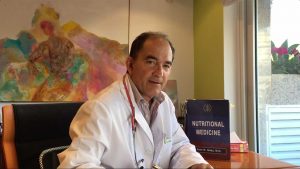The human gastrointestinal tract is a whole world in itself. It contains many bacteria and they are named as natural flora of the gut. these bacteria perform various functions for the body. They help produce nutrients that are essential for human growth. Some of them also help in digestion. They are classified as harmless and are not prone to cause any diseases. However, if their amount decreases they can lead to malnutrition. These bacteria are essential to the human body and play a very important role in maintaining the health.
SIBO
It is abbreviated as small intestine bacterial overgrowth. Excess of everything is bad and when this happens to the number of bacteria in the normal flora of the gut it causes problems for the body. To be mentioned that the small intestine is the prime location for the bacteria to reside. That is why when their number exceeds it is this part of the body that is most affected. This can lead to many acute and chronic diseases. Many of them can prove fatal in children and infants. As they have the tendency to dehydrate and malnourish the body, the diseases should be treated effectively.
Symptoms
When the bacterial growth increases in the human intestine especially the small intestine it shows various symptoms. Some of them are:
Mild abdominal cramps ( severity increases depending upon the stage of disease)
- Bloating
- Discomfort
- Palpitations
- Vomiting or nausea
- Flatulence
- Loose watery stools eventually leading to mild to severe diarrhea
- Sudden weight loss
- Lethargy
- Fatigue
- General body weakness
- Loss of appetite
Whenever these symptoms are reported especially in children, effective measures should be taken to treat it as this can prove fatal.
Complications of SIBO
This overgrowth of bacteria leads to two main complications:
- Diarrhea
- Malnutrition (malabsorption)
- Diarrhea
Whenever there is bacterial excess in the body it leads to diarrhea. It can prove complicated if not treated. This mechanism disrupts the absorption of water and electrolytes. This leads to the formation of loose watery stools. As a result, the body gets dehydrated. If the patient is not treated with fluids and electrolytes replacement it can lead to unconsciousness and even death.
Malnutrition
When the food passes through the small intestine it gets digested by the millions of bacteria present there. They have invasive enzymes which destroy the nutritional capacity of the food. In this way, there are no nutrients left for the absorption. This all together leads to malnutrition. Moreover, such a large amount of bacteria also cause malabsorption. in this case, nutrients should be provided IV to maintain the normal caloric requirement of the human body.
Treatment
As it is bacterial outgrowth the most suggested treatment for this is antibiotic. The antibiotic used in the treatment of SIBO is Rifaximin. This is considered to be the ideal antibiotic. If SIBO leads to further complications they are treated accordingly.
Summary
SIBO is a disease which leads to excessive bacterial growth in the small intestine. This affects the body in many patterns. As the small intestine is the prime location for absorption of nutrients, these bacteria hinder the whole process. All of this leads to malabsorption. Abdominal pain, sudden weight loss, and diarrhea are the main symptoms. This can prove fatal if untreated. Rifaximin is the ideal antibiotic for the treatment of this disease. IV fluids and nutrients are also given.




